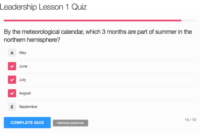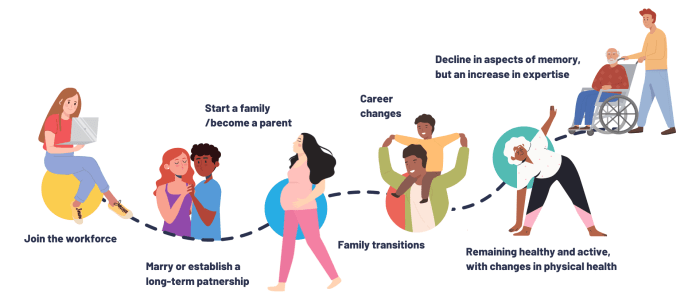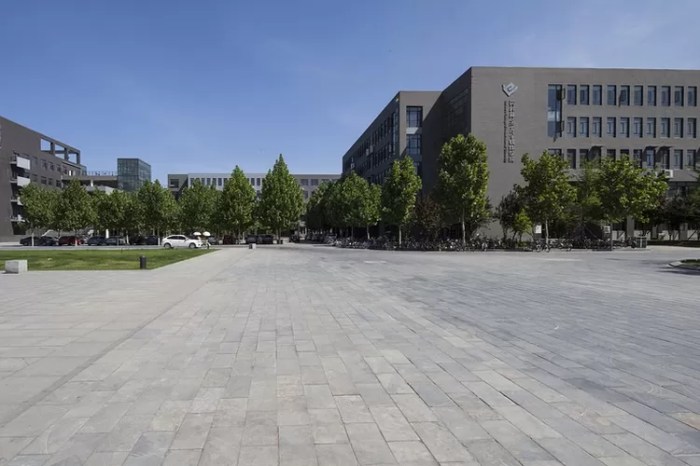Pengalaman pkl dalam bahasa inggris – Praktik Kerja Lapangan (PKL) merupakan bagian penting dalam perjalanan pendidikan mahasiswa, khususnya di Indonesia. Bagi kamu yang ingin menimba pengalaman profesional di dunia kerja, PKL adalah kesempatan emas untuk mengasah keterampilan, membangun jaringan, dan mempersiapkan diri untuk karier masa depan. Namun, bagaimana jika kamu harus berhadapan dengan PKL dalam bahasa Inggris? Jangan khawatir! Artikel ini akan menjadi panduan lengkap untuk memahami seluk beluk PKL dalam bahasa Inggris, mulai dari definisi hingga tips sukses dalam menjalaninya.
Mempelajari bahasa Inggris dalam konteks PKL tidak hanya memperluas peluang kerja, tetapi juga meningkatkan kemampuan komunikasi dan profesionalitas. Bayangkan, kamu dapat berinteraksi dengan rekan kerja, mentor, dan klien internasional dengan lancar. Keahlian ini akan menjadi aset berharga dalam dunia kerja yang semakin global.
Pengalaman Praktik Kerja Lapangan (PKL) dalam Bahasa Inggris: Pengalaman Pkl Dalam Bahasa Inggris
Praktik Kerja Lapangan (PKL), also known as internship, is a crucial part of the academic journey for many students, particularly in vocational and professional fields. It is a structured period of practical experience that allows students to apply their theoretical knowledge and skills in a real-world setting. PKL provides a valuable bridge between the classroom and the workplace, preparing students for their future careers.
The Significance of PKL in Professional Development
PKL plays a vital role in the professional development of students. It provides them with numerous benefits that enhance their skills, knowledge, and overall readiness for the workforce. Here are some key contributions of PKL to students’ professional development:
- Practical Application of Knowledge: PKL allows students to apply the theoretical concepts they have learned in the classroom to real-life scenarios. This practical application deepens their understanding of the subject matter and helps them develop problem-solving and decision-making abilities.
- Development of Essential Skills: PKL provides students with opportunities to develop essential skills that are highly valued in the workplace, such as communication, teamwork, time management, and critical thinking. Working alongside experienced professionals in a professional setting fosters these skills and prepares students for the demands of the workplace.
- Networking and Career Exploration: PKL allows students to build valuable professional connections with industry professionals. They can network with mentors, colleagues, and potential employers, gaining insights into different career paths and exploring potential job opportunities. This exposure to the industry can help students make informed decisions about their future careers.
- Building Confidence and Self-Awareness: PKL helps students build confidence in their abilities and gain a better understanding of their strengths and weaknesses. The experience of working in a professional environment can boost their self-esteem and provide them with a sense of accomplishment. It also helps them identify areas where they need to improve and develop their skills further.
Example of PKL Benefits
Imagine a computer science student who is interning at a software development company. During their PKL, they are assigned to a team working on a mobile app development project. They apply their programming knowledge to contribute to the project, learn new technologies, and work collaboratively with other developers. This experience allows them to gain practical skills, enhance their problem-solving abilities, and build valuable connections within the tech industry. Through this PKL, they gain a deeper understanding of the software development process and develop a portfolio of work that showcases their skills to potential employers.
Stages of Internship

Internships are a crucial part of the learning process for students, especially in fields that require practical experience. They provide an opportunity to apply theoretical knowledge in real-world settings, gain valuable skills, and build professional networks. The internship process typically involves several stages, from finding the right opportunity to completing the internship and submitting a final report.
Stages of Internship
The internship process can be divided into several stages, each with its own set of tasks and goals. These stages are designed to ensure a structured and productive internship experience. The following table provides a brief overview of the key stages of internship:
| Stage | Description |
|---|---|
| Finding Internship Opportunities | This stage involves identifying potential internship opportunities that align with your academic and career goals. You can search for internships through online platforms, university career centers, industry networks, and personal connections. |
| Application and Interview Process | Once you’ve identified suitable internships, you’ll need to apply and go through the interview process. This involves submitting a resume and cover letter, attending interviews, and potentially completing assessments. |
| Onboarding and Orientation | Upon being selected for an internship, you’ll typically undergo an onboarding process. This includes introductions to the team, a review of company policies and procedures, and an overview of your internship responsibilities. |
| Internship Work and Learning | This is the core of the internship experience. You’ll be involved in various tasks and projects related to your field of study, under the guidance of your supervisor. This stage allows you to gain practical experience and apply your theoretical knowledge. |
| Performance Evaluation and Feedback | Regularly, you’ll receive feedback from your supervisor on your performance and progress. This feedback is crucial for identifying areas of improvement and ensuring that you’re on track to meet the internship objectives. |
| Final Report and Presentation | At the end of the internship, you’ll typically be required to submit a final report summarizing your experiences, accomplishments, and learnings. This report may also include recommendations for improvement. |
Importance of Each Stage
Each stage of the internship process is crucial for a successful and fulfilling experience. Understanding the significance of each stage allows you to approach your internship with a structured and purposeful mindset.
- Finding Internship Opportunities: This stage is essential for ensuring that you find an internship that aligns with your interests and career goals. It allows you to explore different industries and gain exposure to potential career paths.
- Application and Interview Process: This stage helps you demonstrate your skills and qualifications to potential employers. It also provides an opportunity for you to learn more about the company and the internship role.
- Onboarding and Orientation: This stage helps you transition smoothly into the internship role and understand the company culture and expectations. It provides a foundation for a successful internship experience.
- Internship Work and Learning: This stage is the heart of the internship, where you gain practical experience and apply your theoretical knowledge. It allows you to develop valuable skills and contribute to real-world projects.
- Performance Evaluation and Feedback: This stage provides valuable insights into your strengths and areas for improvement. It allows you to track your progress and make adjustments to your approach as needed.
- Final Report and Presentation: This stage allows you to reflect on your internship experience and demonstrate your learning. It also provides an opportunity to share your insights and recommendations with the company.
Challenges in Internship
Internships are an integral part of the learning process for students, providing them with valuable hands-on experience in their chosen field. However, internships can also present a range of challenges that students need to navigate effectively. Understanding these challenges and developing strategies to overcome them is crucial for a successful and fulfilling internship experience.
Common Challenges, Pengalaman pkl dalam bahasa inggris
The challenges encountered during internships can vary depending on the industry, company, and individual student. However, some common challenges include:
- Adapting to a new work environment: Stepping into a professional setting can be daunting, especially for students who have limited work experience. This transition can involve adjusting to a new work culture, company policies, and communication styles. It’s essential for students to be open to learning and adapting to these differences.
- Balancing work and academic responsibilities: Internship often requires a significant time commitment, which can clash with academic responsibilities, especially during busy semesters. Managing both academic workload and internship tasks effectively is crucial to avoid burnout and maintain a healthy balance.
- Lack of clear expectations or guidance: Sometimes, interns may face situations where they are unsure of their roles and responsibilities, leading to confusion and frustration. Clear communication with supervisors and mentors is essential to ensure a clear understanding of expectations and to seek guidance when needed.
- Dealing with challenging colleagues or supervisors: Not every workplace is perfect, and students may encounter colleagues or supervisors who are difficult to work with. Learning to navigate these challenges professionally and effectively is important for building resilience and navigating workplace dynamics.
Overcoming Challenges
While internships present challenges, there are several strategies that students can employ to overcome them:
- Proactive communication: Open and honest communication with supervisors and mentors is key to addressing any concerns or issues. Regularly seeking feedback and clarifying expectations can prevent misunderstandings and ensure a smooth internship experience.
- Time management skills: Effective time management is crucial for balancing internship responsibilities with academic commitments. Students should prioritize tasks, set realistic deadlines, and utilize tools like calendars and to-do lists to stay organized.
- Adaptability and flexibility: Internships often involve unexpected tasks and changes in priorities. Being adaptable and flexible allows students to embrace new challenges and contribute effectively to the team.
- Seeking support: Students should not hesitate to seek support from their supervisors, mentors, or peers when facing difficulties. Reaching out for guidance and advice can help students overcome challenges and learn from their experiences.
Preparation for Internship Challenges
Preparing for internship challenges can make the experience smoother and more fulfilling. Here are some steps students can take:
- Research and understand the industry and company: Before starting an internship, it’s beneficial to research the industry, company culture, and specific roles. This knowledge can help students better prepare for the challenges they might face and understand the context of their work.
- Develop essential skills: Building essential skills like communication, problem-solving, teamwork, and adaptability can equip students with the tools to navigate internship challenges effectively.
- Network with professionals: Connecting with professionals in the field can provide valuable insights into the industry and potential challenges. Attending industry events or reaching out to alumni can help students gain valuable perspectives.
- Seek mentorship: Having a mentor who can provide guidance and support throughout the internship can be invaluable. Mentors can offer advice, help students navigate challenges, and provide a sounding board for their experiences.
Tips Sukses dalam PKL
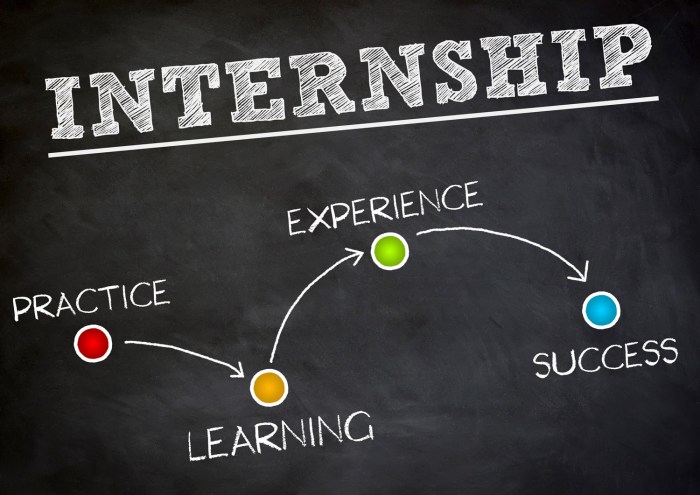
Praktek Kerja Lapangan (PKL) adalah bagian penting dari pendidikan mahasiswa. Ini adalah kesempatan untuk menerapkan pengetahuan dan keterampilan yang diperoleh di kelas dalam lingkungan kerja nyata. PKL tidak hanya membantu kamu dalam pengembangan profesional, tetapi juga memberikan wawasan berharga tentang industri yang ingin kamu geluti. Berikut adalah beberapa tips yang dapat membantu kamu sukses dalam PKL:
Membangun Hubungan Profesional dengan Pembimbing PKL
Membangun hubungan yang kuat dengan pembimbing PKL sangat penting untuk kesuksesan PKL kamu. Pembimbing adalah sumber informasi dan bimbingan yang berharga, dan mereka dapat membantu kamu dalam menyelesaikan tugas dan mengatasi tantangan yang kamu hadapi.
- Bersikaplah proaktif dan komunikatif. Jangan ragu untuk bertanya jika kamu tidak mengerti sesuatu atau jika kamu membutuhkan bantuan.
- Tunjukkan rasa hormat dan profesionalisme kepada pembimbing. Selalu datang tepat waktu, bersikap sopan, dan ikuti instruksi mereka dengan hati-hati.
- Berikan update rutin tentang kemajuan PKL kamu. Ini akan membantu pembimbing kamu dalam memonitor kemajuan kamu dan memberikan dukungan yang tepat.
- Berpartisipasilah dalam diskusi dan presentasi. Ini adalah kesempatan untuk menunjukkan pengetahuan dan kemampuan kamu kepada pembimbing kamu.
Menyelesaikan Tugas PKL dengan Efektif
Tugas PKL biasanya dirancang untuk membantu kamu dalam mengembangkan keterampilan dan pengetahuan yang diperlukan dalam industri yang kamu pilih. Berikut adalah beberapa strategi untuk menyelesaikan tugas PKL dengan efektif:
- Pahami dengan jelas tujuan dan ruang lingkup tugas PKL. Pastikan kamu mengerti apa yang diharapkan dari kamu dan apa yang perlu kamu capai.
- Buat rencana dan jadwal yang realistis. Bagi tugas PKL menjadi bagian-bagian yang lebih kecil dan tetapkan tenggat waktu untuk setiap bagian.
- Manfaatkan sumber daya yang tersedia. Gunakan buku, jurnal, dan internet untuk mendapatkan informasi yang kamu butuhkan. Jangan ragu untuk meminta bantuan dari pembimbing kamu atau kolega kamu.
- Dokumentasikan semua pekerjaan kamu dengan baik. Simpan catatan lengkap tentang semua tugas yang kamu selesaikan, data yang kamu kumpulkan, dan analisis yang kamu lakukan.
- Presentasikan hasil PKL kamu dengan jelas dan ringkas. Gunakan visualisasi yang menarik dan bahasa yang mudah dipahami.
Tips Praktis untuk Sukses dalam PKL
- Bersikaplah positif dan antusias. PKL adalah kesempatan untuk belajar dan tumbuh, jadi manfaatkan kesempatan ini sebaik mungkin.
- Bersikaplah terbuka terhadap pengalaman baru. Jangan takut untuk keluar dari zona nyaman kamu dan mencoba hal-hal baru.
- Bangun jaringan profesional. Gunakan PKL sebagai kesempatan untuk bertemu orang-orang baru dan membangun hubungan profesional.
- Manfaatkan waktu kamu sebaik mungkin. PKL adalah waktu yang terbatas, jadi gunakan waktu kamu dengan bijak.
- Nikmati prosesnya. PKL adalah pengalaman yang berharga, jadi nikmati prosesnya dan belajarlah dari pengalaman kamu.
Evaluating Your Internship Experience
Internships are valuable opportunities to gain practical experience and develop your skills. As your internship comes to an end, it’s essential to reflect on your journey and evaluate your experience. This evaluation helps you identify areas for improvement, celebrate your achievements, and make informed decisions about your future career path.
Key Aspects to Evaluate
Evaluating your internship experience involves considering various aspects, including your skills, knowledge, and overall impact. Here are some key areas to focus on:
- Skills Development: Identify the new skills you acquired during the internship. Think about the technical skills, soft skills, and problem-solving abilities you developed. Consider how these skills will be valuable in your future career.
- Knowledge Gained: Reflect on the new knowledge and insights you gained. Did you learn about specific industry practices, tools, or concepts? How has your understanding of the field evolved?
- Projects and Responsibilities: Analyze the projects you worked on and the responsibilities you held. What were your key contributions? Did you encounter any challenges and how did you overcome them? What did you learn from these experiences?
- Work Environment and Culture: Consider the work environment and company culture. Did you feel comfortable and supported? What were the positive and negative aspects of the culture? How did the work environment contribute to your overall experience?
- Professional Growth: Reflect on your professional growth throughout the internship. Did you gain confidence, improve your communication skills, or develop your leadership abilities? How did the internship contribute to your overall development?
Self-Reflection Questions
Asking yourself specific questions can help you delve deeper into your internship experience. Consider these prompts:
- What were the most challenging tasks you encountered and how did you overcome them?
- What were the most rewarding aspects of your internship experience?
- What skills or knowledge did you gain that you didn’t anticipate learning?
- How did your internship experience change your perspective on your career goals?
- What feedback did you receive from your supervisors or colleagues? How did you use this feedback to improve your performance?
- What are your strengths and areas for improvement based on your internship experience?
- What are your future career aspirations and how does your internship experience contribute to achieving them?
Utilizing Your Evaluation
The insights you gain from your evaluation can be valuable for your personal and professional development. Here are some ways to utilize the results:
- Resume and Cover Letter: Highlight your skills and experiences gained during the internship in your resume and cover letter. Use specific examples to showcase your achievements and abilities.
- Networking: Connect with your supervisors, colleagues, and other professionals you met during the internship. Build your network and stay informed about industry trends.
- Skill Development: Identify any skills you need to further develop based on your evaluation. Take courses, attend workshops, or seek out opportunities to enhance your abilities.
- Career Planning: Use your evaluation to inform your career decisions. Reflect on your strengths, interests, and future aspirations to choose a career path that aligns with your goals.
Ulasan Penutup
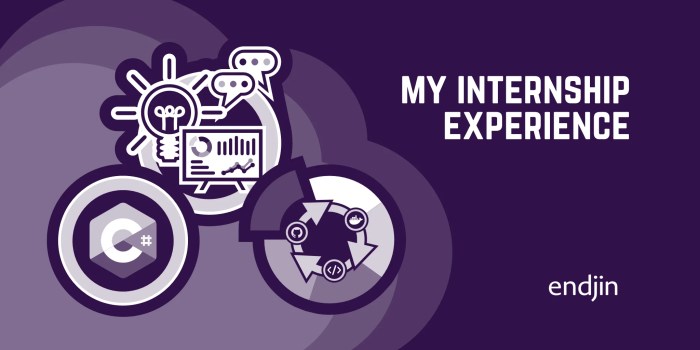
Melalui PKL, mahasiswa tidak hanya mendapatkan pengalaman praktis, tetapi juga kesempatan untuk belajar dan berkembang. Manfaatkan peluang ini dengan baik, kuasai bahasa Inggris, dan tingkatkan profesionalitasmu. Ingat, PKL adalah langkah awal yang penting untuk menuju karier yang sukses dan gemilang.


